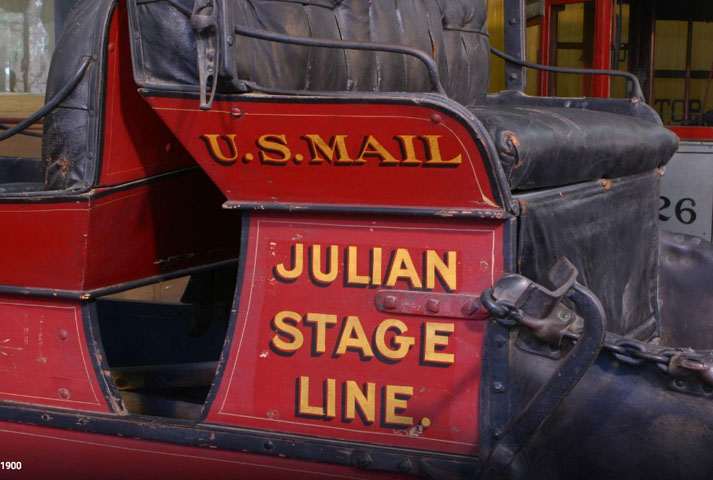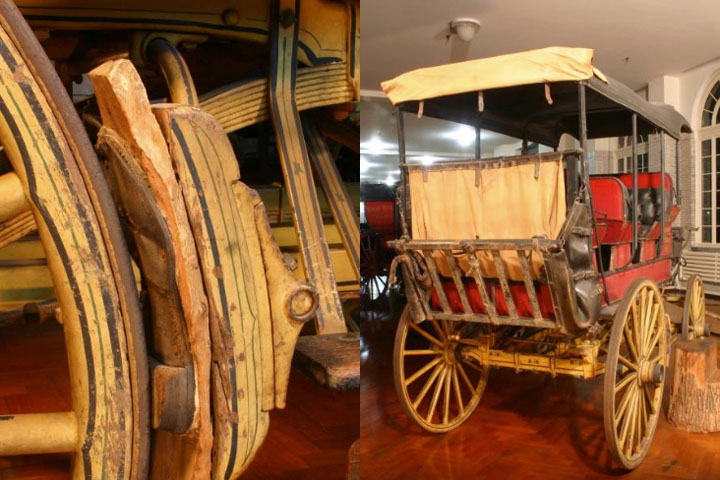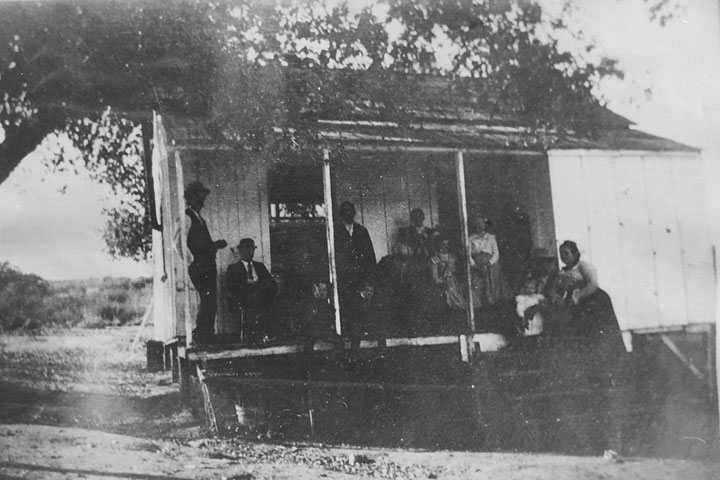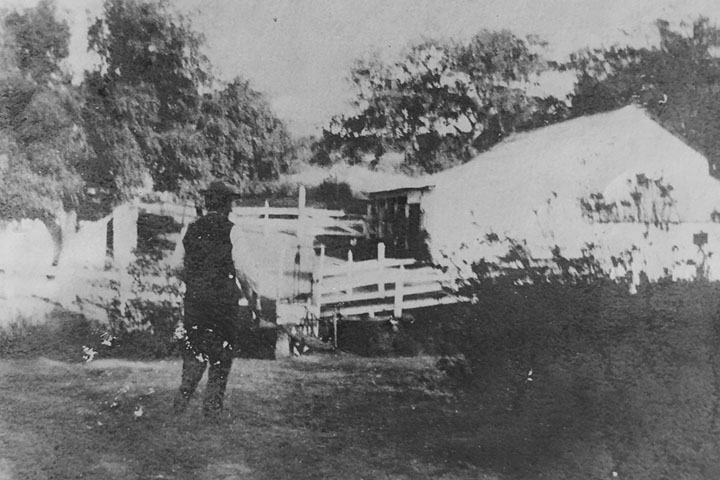
Above: Frary and Foster Stage Line Concord Coach No. 158 carried passengers and mail between San Diego, El Cajon, Lakeside and Julian between 1886 and 1910. It carried 9 passengers in 3 rows. A broad leather strap served as the backrest for the middle row.

The discovery of gold in Julian in 1870 brought a frenzy to the back-country. Mining camps sprung up in Julian and Banner. There was one way to get there, horseback or horse drawn wagon up the Mussey Grade from Foster Station in Lakeside through the little town of Nuevo (re-named Ramona in 1886).
The San Diego Cuyamaca Railroad shortened the distance to the mines in 1895. Running twice a day from San Diego, passenger trains dropped off travelers to North County at Foster Station (now under the San Vicente Reservoir), on the outskirts of Lakeside, east of El Cajon.
The stage would set off from Foster at 10 a.m., arriving first in Nuevo (Ramona) where passengers had dinner, then on to Ballena, along Old Wagon Road for a change of horses. Ballena is an unincorporated community in the Ballena Valley of San Diego County, California. Ballena is east of Ramona and west of Santa Ysabel, at the junction of California State Route 78 and the Old Julian Highway.
Oftentimes, prior to the steep, switchback climb up Stone Grade to Ballena, the stage would pull in at Luckett stage stop, operated by the Booth family.
The Luckett Stage Stop was on the Surprise property. What is now Old Julian Highway was once called Old Wagon Road and came through this property until the historic floods of 1916. The road was rerouted to where it is today. How cool is that?

Above: Luckett Stage Stop c.1890 (Photo courtesy of the Guy B. Woodward Museum and Ramona Historical Society). The stagecoach passed through Santa Ysabel then on to Julian after a 10-hour journey.
